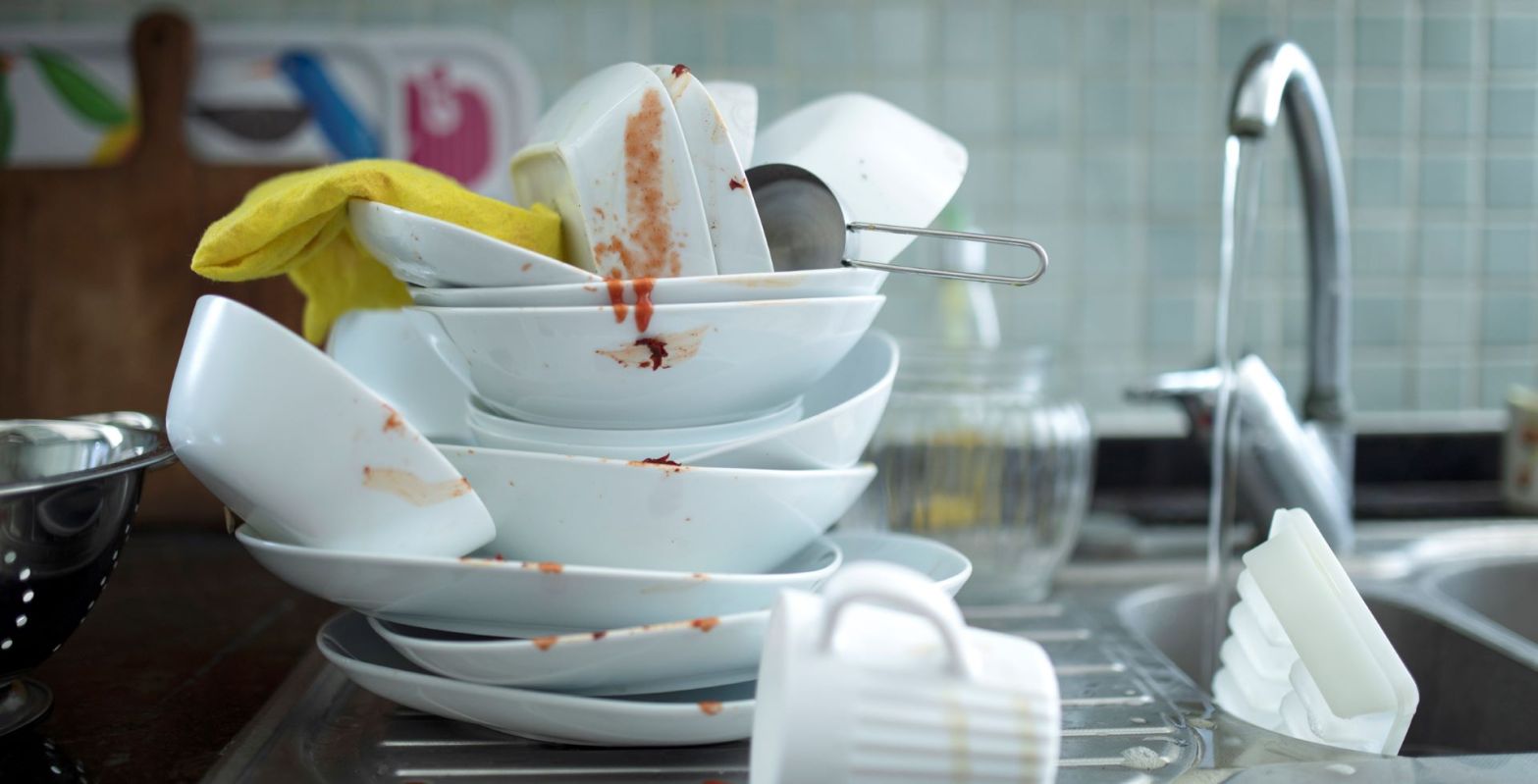When you wash your dishes, do you tend to wash them in the sink before placing them in the dishwasher? According to a new report, this practice costs you money and wastes resources.
What is "double dishwashing?"
A study by the United Kingdom's Utilita Energy, reported by Euronews, revealed that three out of every five households in the UK are double dishwashing — or pre-washing dishes before placing them in the dishwasher.
The research showed that concerns over clogging dishwashers and wanting to keep them clean were the most common reasons for doing this.
The study also indicated that the same ratio of households have never used their dishwasher's "Eco mode," which is designed to lower the wash and rinse temperatures while the machine is running.
Why is double dishwashing bad?
Double-dishwashing is estimated to cost eight million households across the UK close to $90 every year in electricity and water. Across the UK, this amounts to about $580 million lost.
Pre-rinsing dishes doesn't just waste money, but it also wastes water. Utilita Energy noted that households waste over 1,200 gallons of clean water yearly on pre-rinsing or 2,422 Olympic-sized swimming pools across Britain.
The carbon pollution of the UK's pre-rinsing epidemic is the equivalent of driving 849 million miles in a standard car, per Euronews.
"Knowing what our habits are costing us can encourage us to reconsider our behaviours, and in this case, the savings are significant, so should hopefully make households think twice," Utilita Energy's head of sustainability, Archie Lasseter, explained to Euronews.
What should be done instead?
Lasseter is hopeful that Utilita's research will help people shift their behaviors.
"We hope that this informative campaign will encourage people to put confidence in their machines and save the pocket and the planet in the process," Lasseter told Euronews.
If you're guilty of double-dishwashing, all you need to do to reform your practices is to scrape off any accumulated food on the dish.
Cleaning your dishes off too much may actually disrupt the sensor in the dishwasher that controls the strength of the jets, meaning that you're fooling your dishwasher into thinking everything needs a light wash.
In short, let your dishwasher do the work — it's what it's there for.
Join our free newsletter for easy tips to save more, waste less, and help yourself while helping the planet.









